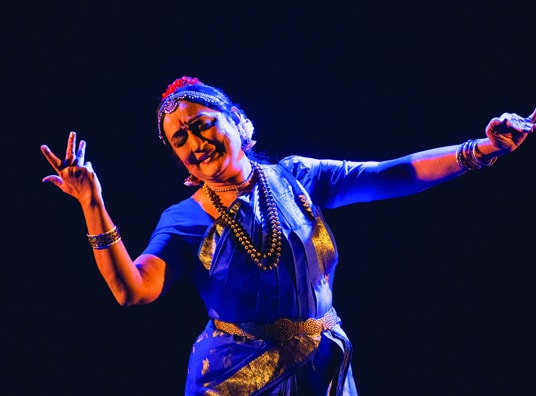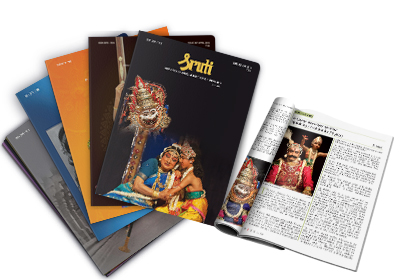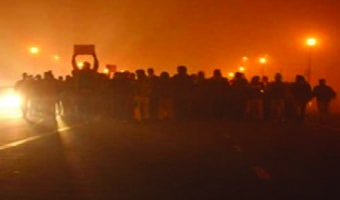
Chennai based theatre group Stray Factory prefers the off-beaten path. In the past three years of their existence, the group has performed in countries like Australia, Dubai and Malaysia to name a few.
Interstingly, the group prefers new writing over classics for their plays as it gives them greater scope for experimentation and worldwide appeal. Their style is also quite unique. They bring to fore a confluence of language-mash up, movement over text, constant alienation of time and space, minimal use of sets and studied use of pop culture. Read on to know more about Stray Factory.
Tell us how the theatre group Stray Factory came into being.
A: Stray Factory was built on the idea of being a collaborative; we wanted to ‘stray’ away so to speak from the conventional ensemble, repertory or theatre company model. We found great satisfaction in collaborating with working with artists across disciplines. In 2010, we worked on our first production as a collaborative on a play called ‘Hitchcock’.
Whose work in theatre inspires you?
A: As far as Chennai goes, I’d have to say the work of Rajiv Krishnan from Perch. We’re also big fans of the Korean theatre companies that have been visiting recently namely Tuida.
What is the reason behind always writing original content for your plays rather than picking up work of playwrights as done by many theatre groups?
A: As in the case of most of our short plays, the writing process is almost collaborative and the experience is painfully rewarding and excitingly agonizing (if that makes sense!). This group experience that involves sufficient amount of brawling, bickering and binging has lead us to this journey of wanting to perform original content.
Also, we wanted to discover our grammar and style in performance and that’s sometimes difficult when you perform published material. Original plays have a larger global appeal and have a longer life, which is essential for a theatre company to grow.
If we find a published play that’s exciting we might give it a shot.
Apart from original writing, what sets you apart from other theatre groups?
A: We’ve slowly been working towards a grammar that excites us. For us, it’s the mash up of languages, Movement over Text, Constant alienation of time and space, Minimal use of sets and studied use of pop culture. I think this style could be unique.
Also, we have a monkey as the official mascot. He’s pretty cool.
A lot of your productions have been showcased outside India in countries like Auckland, Sydney, Kuala Lumpur and Dubai. How has the response been like? What kind of local themes have you addressed in your international productions?
A: To the rest of the world, India is famous for being the World’s Largest Democracy and for its colourful entertainment industry. So, our themes have been extensions of the same: Politics and Cinema, Two themes that are unique to us and two things people across the globe always have an opinion about!
Also, we wanted to discover our grammar and style in performance and that’s sometimes difficult when you perform published material. Original plays have a larger global appeal and have a longer life, which is essential for a theatre company to grow.
If we find a published play that’s exciting we might give it a shot.
Apart from original writing, what sets you apart from other theatre groups?
A: We’ve slowly been working towards a grammar that excites us. For us, it’s the mash up of languages, Movement over Text, Constant alienation of time and space, Minimal use of sets and studied use of pop culture. I think this style could be unique.
Also, we have a monkey as the official mascot. He’s pretty cool.
A lot of your productions have been showcased outside India in countries like Auckland, Sydney, Kuala Lumpur and Dubai. How has the response been like? What kind of local themes have you addressed in your international productions?
A: To the rest of the world, India is famous for being the World’s Largest Democracy and for its colourful entertainment industry. So, our themes have been extensions of the same: Politics and Cinema, Two themes that are unique to us and two things people across the globe always have an opinion about!
Also, we wanted to discover our grammar and style in performance and that’s sometimes difficult when you perform published material. Original plays have a larger global appeal and have a longer life, which is essential for a theatre company to grow.
If we find a published play that’s exciting we might give it a shot.
Apart from original writing, what sets you apart from other theatre groups?
A: We’ve slowly been working towards a grammar that excites us. For us, it’s the mash up of languages, Movement over Text, Constant alienation of time and space, Minimal use of sets and studied use of pop culture. I think this style could be unique.
Also, we have a monkey as the official mascot. He’s pretty cool.
A lot of your productions have been showcased outside India in countries like Auckland, Sydney, Kuala Lumpur and Dubai. How has the response been like? What kind of local themes have you addressed in your international productions?
A: To the rest of the world, India is famous for being the World’s Largest Democracy and for its colourful entertainment industry. So, our themes have been extensions of the same: Politics and Cinema, Two themes that are unique to us and two things people across the globe always have an opinion about!
Also, we wanted to discover our grammar and style in performance and that’s sometimes difficult when you perform published material. Original plays have a larger global appeal and have a longer life, which is essential for a theatre company to grow.
If we find a published play that’s exciting we might give it a shot.
Apart from original writing, what sets you apart from other theatre groups?
A: We’ve slowly been working towards a grammar that excites us. For us, it’s the mash up of languages, Movement over Text, Constant alienation of time and space, Minimal use of sets and studied use of pop culture. I think this style could be unique.
Also, we have a monkey as the official mascot. He’s pretty cool.
A lot of your productions have been showcased outside India in countries like Auckland, Sydney, Kuala Lumpur and Dubai. How has the response been like? What kind of local themes have you addressed in your international productions?
A: To the rest of the world, India is famous for being the World’s Largest Democracy and for its colourful entertainment industry. So, our themes have been extensions of the same: Politics and Cinema, Two themes that are unique to us and two things people across the globe always have an opinion about!
Our priority, in all our productions we stay true to our Urban South Indian Identity, which lends itself to a variety of stories.
Any advice for theatre aspirants?
A: What we’d really like to share from our adventures is that there is a joy in producing original work that’s very difficult to replace. Also, there is no ONE way to make a career in theatre, you can create your own; don’t fall into the spiral of doing what everyone else is doing. Finally, work with people you want to, positive people who share your energies and love for the medium.
What are you currently doing?
A: We’re working on the Indian Premiere of our most travelled production ‘My name is Cinema’. Taking a break from doing the original scripts we’d like to see if we can shift the focus to the ‘actor’ and are planning a series of monologues called ‘Extraordinary Unusual’ written by Australian playwright Pete Malicki.
What are your future plans?
A: We’re going to focus on travelling with 2 plays the next year ‘Osama, Cine-maa and a Whole lot of Black Money’, five of our award winning short plays that were a part of the Park’s New Festival National Tour this year. ‘My Name is Cine-maa’ has the potential for a more global showcase and we’re working towards the same.
‘The Pillowman’ is another play that has caught our fancy; we’re looking towards working on a production of the play later next year. A collaborative production with Singapore Company RDG is on the cards.
For more details, visit http://www.strayfactory.com/
© Mytheatrecafe



